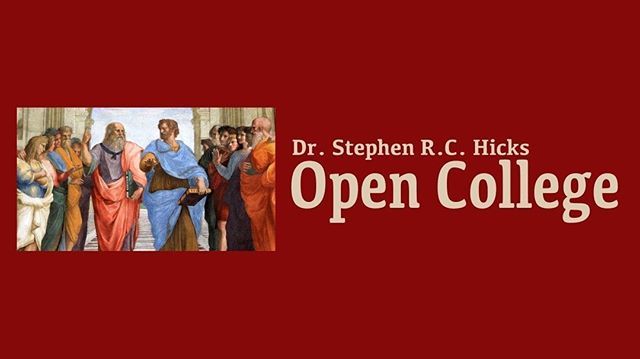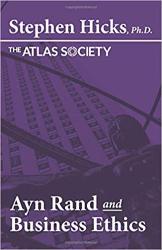My podcast series published by Possibly Correct Productions, Toronto.
Topics: Free Speech: Why the Philosophy Matters. Violent Politics: The Lesson of Marxism. Conservatives Are Not Free-Market Capitalists. Nietzsche’s Sister and The Will to Power. Your Sex Life under Socialism. Postmoderns and Marxists: Lovers or Enemies? And more.
Via: YouTube, iTunes, Soundcloud, Stitcher, Twitter feed. Sign up for notifications of new episodes here.


Explaining Postmodernism: Skepticism and Socialism from Rousseau to Foucault

“Egoism in Nietzsche and Rand”
Audio version in [mp3] or at [YouTube] [101 minutes].
The original print essay [pdf] published in The Journal of Ayn Rand Studies 10:2, Spring 2009, 249-291.

“From the Office of the Reproducer-General”
Satire: [YouTube] or audio here [MP3]:

“Global Problems Are Too Big for Little Kids”
My 1991 article in The Wall Street Journal about neither indoctrinating nor overloading children.
Online in text [pdf] and audio:
[mp3].
Nietzsche and the Nazis

Part 1. Introduction: Philosophy and History [MP3] [YouTube]
Part 2. Explaining Nazism Philosophically [MP3] [YouTube]
Part 3. National Socialist Philosophy [MP3] [YouTube]
Part 4. The Nazis in Power [MP3] [YouTube]
Part 5. Nietzsche’s Life and Influence [MP3] [YouTube]
Part 6. Nietzsche against the Nazis[MP3] [YouTube]
Part 7. Nietzsche as a Proto-Nazi [MP3] [YouTube]
Part 8. Conclusion: Nazi and Anti-Nazi Philosophies [MP3] [YouTube]
Information about other editions and translations here.
Review essay on Donald Frey’s America’s Economic Moralists: A History of Rival Ethics and Economics (SUNY Press, 2009)
Audio version in MP3 format or at YouTube.
Original print review published in Business Ethics Quarterly 22.1 (2012), 186-193.

Review of David Kelley’s The Evidence of the Senses (LSU Press, 1986)
Audio version in MP3 format or at YouTube.
Original review published in Auslegung in 1989.
Review of Kevin Gibson’s Ethics and Business: An Introduction (Cambridge University Press, 2007)
Audio version in MP3 or at YouTube.
Original print version published in the Spring 2010 issue of Teaching Philosophy. Here is a PDF of the review.

Review of Tara Smith’s Ayn Rand’s Normative Ethics: The Virtuous Egoist (Cambridge University Press, 2006)
Audio version in MP3 format or at YouTube.
Review originally published in Philosophy in Review. Here is a PDF version of the original print edition.
“What Business Ethics Can Learn from Entrepreneurship”
Audio edition in MP3 format or at YouTube.
Original 2009 print essay [pdf] published in Journal of Private Enterprise.

“What Entrepreneurs Can Teach Us All About Life”
Interviewed by Charlie Turner at The Wall Street Journal‘s site. Based on my article “What Entrepreneurs Can Teach Us All About Life.” From the article:
“We often think of entrepreneurs as larger-than-life characters. They take big risks. They make their own rules. They innovate and experiment, questioning things everybody else takes for granted.
“It can almost seem like entrepreneurs are a breed apart. But they’re not. All of us are born with the ability to take risks, think creatively and challenge the everyday way of doing things. …”
Explaining Postmodernism:
Skepticism and Socialism from Rousseau to Foucault
Chapter One: “What Postmodernism Is” [mp3] [YouTube]
Chapter Two: “The Counter-Enlightenment Attack on Reason” [mp3] [YouTube]
Chapter Three: “The Twentieth-Century Collapse of Reason” [mp3] [YouTube]
Chapter Four: “The Climate of Collectivism” [mp3] [YouTube]
Chapter Five: “The Crisis of Socialism” [mp3] [YouTube]
Chapter Six: “Postmodern Strategy” [mp3] [YouTube]
Information about other editions and translations here.

“Ayn Rand and Business Ethics”
Audible. Originally published in The Journal of Accounting, Ethics & Public Policy. Translations into Spanish, Korean, German, Serbo-Croatian, and Portuguese. Monograph edition.
Abstract: Most traditional systems of business ethics hold that business is essentially amoral or immoral. Such systems share a common assumption: that conflicts of interest — either because of scarce resources (most often assumed by those on the Left) or innate human badness or sin (most often assumed by those on the Right) — are basic to the human condition. That assumption of fundamental conflict is rejected in Ayn Rand’s system of ethics. Rand’s system, by contrast, emphasizes the power of human reason to shape one’s character and beliefs, and it makes fundamental reason’s power to develop new resources and cultivate win-win social relationships. In this essay, Stephen Hicks applies Rand’s radical ethical perspective to key issues in business ethics and contrasts it to those perspectives based on the assumption of the amorality or immorality of business.
Dear Professor Hicks,
I am a translator, journalist and trained neuroscientist from Berlin (Germany). I am currently reading your book „Explaining Postmodernism” and I find it utterly enlightening about the developments I see in German academia and public debate. As a bilingual English/German translator I wondered, whether there already existed a translation for German readers. From your website it appears that no such effort has been made yet.
I am certain, that the issues surrounding the growing the acceptance of relativist thought at universities, would make a German translation very valuable to people from many different wakes of life. So I am writing to ask, whether you would support a translation into German and if yes under what terms.
With best wishes
Dr. Christian Honey
The links for both the pdf and the mp3 for the essay “Global Problems Are Too Big for Little Kids” appear to be broken. I would love to be able to read the essay if possible.
Fixed. Thanks for letting me know.
Professor Hicks,
Your PDF and Youtube information on Post Modernism are simply *excellent*. Thank you for clarify this very confusing and important topic
P.B.
Boston, MA
Thank you, Paul!
I have enjoyed “Explaining Postmodernism” and “Nietzsche and the Nazis” very much, thanks for making them available.
The youtube link to “Egoism in Nietzsche and Rand” is broken. Parts 1 and 2 are available at https://www.youtube.com/watch?v=9vbz5oFJFAc and https://www.youtube.com/watch?v=3J0tjFUsglg.
(Their combined length is 101 minutes and 23 seconds, which when rounded to the nearest whole minute matches the “101 minutes” near your link, so I assume their combined content matches the no-longer-available video.)
Thanks for the comment, Jonas, and the updated links.
I want to thank you Mr. Hicks for your brilliant book/dvd “Nietzsche & the Nazis”. I have consumed countless books, documentaries, dvd, speeches about the Nazis and your dvd I purchased was by far intellectually superior to everything else I’ve seen or read. You do not talk down to your audience, which is very rare. Also you talk to your audience like they are intelligent, moral people who don’t need to be beaten over the head with adjectives and over use of telling us that the Nazis were evil. With Hitler & the Nazis we are supposed to believe they were born evil, set out to do evil & accomplished their goals of doing evil. That type of thinking should be left to the cartoons for children. As you say the Nazis were not intellectual lightweights. I was an amateur in learning about Nietzsche and you really expanded my knowledge of the great man. Your comparisons of Nietzsche to the Nazis were fair & poignant. I’m curious to know have you ever been attacked by supposed “civil rights groups”/ thought police for your depiction of the Nazis of men & not demons? Your work should be seen as a basic text for high school & college students trying to learn about WWII & F.Nietzsche. Its a shame such few, noble men like yourself exist in the literary world. Thank you my friend.
Thanks a lot for the highly positive response, Kevin. Yes, lots of negative blowback from various segments, but that’s part of the jobs, so to speak. : )
Hello Dr. Hicks
I enjoyed reading your books and listening to your lectures and podcasts. They are truly illuminating in today’s world. I’ve also bought the Persian translation of your “Explaining Postmodernism” and I’m looking forward to reading it as well.
Regards,
Hamed
Thanks a lot, Hamed.
Hello Dr. Hicks,
After listening to the audio versions of Nietzsche & the Nazis, Explaining Postmodernism and almost of your Open College podcast, that all of them I find very helpful to understand a lot of nowadays society and a better view of the right and capitalism, a view that I searched and needed, for improving my leftist view and trying to gain as much as I can an entrepreneurial mindset, I didn’t find a single mention of Spinoza and his philosophy. Is there a reason why You didn’t mentioned about Spinoza?
The utmost respect and a sincere humbleness,
Yours truly,
Bogdan COSTEA.
P.S. pardon my English, it sorted out of my heart.
Thanks for your comment and question, Bogdan. Much appreciated.
I respect much of Spinoza and admire parts of his work. He is one of the greats. Though I’ve not found him directly relevant to the intellectual history I cover in EP and N&N, so he is not included there.
I teach him occasionally, and so from that a podcast may emerge.
Best,
Stephen
Hi again, Bogdan. Your comment reminded me of this I posted a few years ago on Spinoza: https://www.stephenhicks.org/2017/05/14/why-spinoza-was-excommunicated/.
Thank You a lot for answering to my question, but being greedy as every other human, now, I would like a long talk with You, for explaining me why You didn’t find Spinoza relevant to the intellectual history that you cover in EP and N&N.
I know, I’m irrelevant but what a moment that would be for my existence!
All the best,
Sincerely,
Bogdan COSTEA.
Greetings, Dr. Hicks,
I have recently discovered your Open College Podcast and have enjoyed it immensely. This week I listened to Ep#45, “Slavery’s Greatest Enemies.” In the episode, Before you read some biblical verses on slavery, you ask to be corrected if you are wrong, “but to your knowledge, there is not a single word in the bible that says anything is wrong with slavery.” You remark that there are instructions on how to do slavery properly but nothing wrong in principle with slavery.
This is a complex topic in the scripture. From a modern perspective, it’s not morally difficult to recognize the evils of slavery. I think it is essential to acknowledge the writings and instructions in the Bible span centuries, arising from very ancient cultures where slavery was an embedded norm. The Bible is a compilation of books telling a history of God working in and through people over a long period. I say this because not all evil is dealt with in the same way in the scripture, in terms of its practical abolition. In the scripture, slavery is one of these corrupt practices which is abolished not by force but ultimately as one comes to obey the teachings of Christ.
There are verses in the writings of Paul that speak against slavery. In Timothy 1:8-11 Paul talks about the law and its proper application. He points out that the law’s punishments are unnecessary for those who don’t break them. However, he says, “the law is laid down for the lawless, disobedient, ungodly and sinners,” and then describes sinful acts that are morally wrong. In that list, he includes “enslavers,” those who acquire and sell people. Here the idea of buying and selling people is included in a list of morally wrong practices.
Furthermore, I think the argument can be made that the entire letter of Philemon is a stand against slavery. The apostle paul writes a slave owner about a slave. In this letter, the apostle forcefully, yet with tact and a good dose of sarcasm, teaches an enslaver about freeing a slave.
I thought I would put forth these two examples. Perhaps, you may find them interesting. Once again, thank you for your podcast episodes. I learn from them, and they challenge me to think more deeply.